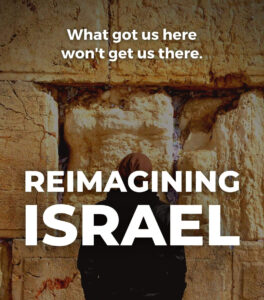
We are already on to another book. I mean, at least at four chapters, Jonah was four times as long as Obadiah…. And, finally, we have a guy who we know when he lived – Micah (an anglicization of Mikayahu) was an 8th century BCE prophet from the village of Moresheth, in the kingdom of Judah. His pronouncements, apparently, will be of doom, followed by messages of hope, and mostly centered around unjust leaders and oppressive rich people, and shilling for the next candidate for king. Micah, also, did not write or have written much of this book, as chapters 4-7 were not written until the 5th century BCE (and forewarning us that this book is only seven chapters). I find myself wondering how accurate a record of oral prophecies written three centuries after the fact, based on the telephone game of lore being passed down over the generations, is likely to be. Some scholars, I gather, consider the Book of MIcah to be a sort of remake of the Book of Isaiah, with its theme of future redemption and exalted status for Israel after a period of decline.
- Micah immediately heads into uncharted territory. Not only, he announces, will the sins of the local kingdom bring ruin on themselves, but, they are the rippled starting of a global catastrophe, the likes of which no one has ever seen before. Is he presaging something akin to The Flood? No specifics are given beyond wrack and ruin, and a vague allusion to shaving one’s head in repentance.
- To be sure, Micah parrots the words of God, to be sure, there are those among you who are righteous. But, you’re not really doing anything to stop the wicked folk, and one by one, they’re enticing good people astray. If you’re not being part of the solution, you’re part of the problem. Modern day corporate mantra, two millennia ago.
- God continues, via Micah, now turning towards the leaders of the country. Oppressive leaders, he notes, and the people are already grumbling, and one day soon, they’re going to openly rebel, and God’s going to help them. Better would be changing their leadership paradigm so that people aren’t so unhappy, and then they won’t riot in the streets. With God’s help. So there’s that.
- One day, Micah informs everyone, Israel will be restored to glory and God’s favor. But first, of course, a bit of exile, in Babylon… we’ve heard this one before. But one day, yes, one day, there will be no more wars, other nations may worship other gods, but the Jews will follow the ways of the best one. And that’s okay. Let them worship pitiful lesser gods. We’ll be on top. Yay God.
- When Israel returns to power, under the guidance of the tribe of Ephrath, it will destroy its enemies – their cities, sacred spaces, and places of worship. Why? Because God’s tired of other nations not getting with the program and following him. Heretics all!
- Look, God says through Micah, I’ve saved your asses from enemies, brought you out of slavery, set you up with a great country, and you repay me by worshipping other gods. On the flipside, I’ve aided your enemies in defeating you or putting you under siege, killing off your kids, your livestock, your crops – and you still repay me by worshipping other gods. I don’t get it. What do you want, carrot or stick? What do those other gods have that I don’t? Someone answer me or I’m going to kill you all!
- God winds this rant down and the Book of Micah ends with what has become the same basic speech from every prophet. Get right with me and all will be unicorns and rainbows, don’t get right with me and it will all be death and destruction. I’m beginning to think the entire set of the books of the prophets could be summed up with that sentence.